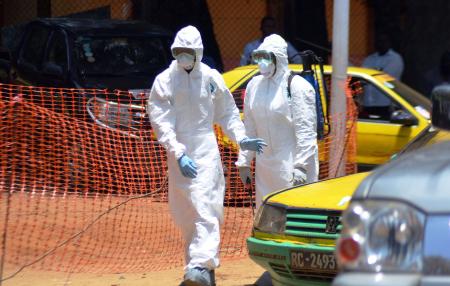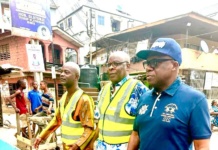According to the World Health Organization (WHO), there should be an Ebola vaccine ready for West Africa some time in 2015. Clinical trials are due to get underway in the next few weeks and the disease’s emergency status means that subsequent phases can officially be accelerated so that a virus should become available in months instead of years.
GlaxoSmithKline will start trials next month, with the British pharmaceutical giant having initially started its own development of the vaccine in May 2013. GlaxoSmithKline’s website states: “We are working with the US National Institutes of Health’s Vaccine Research Center (VRC) to advance development of an early stage vaccine candidate for Ebola. GSK acquired the vaccine candidate when we purchased Okairos in May 2013.
“In collaboration with VRC, we have evaluated this vaccine candidate in pre-clinical studies and we are now discussing with regulators advancing it to a phase I clinical trial programme later this year.”
A GlaxoSmithKline spokeswoman for said: “GSK and the VRC appreciate the very serious nature of the current Ebola outbreak, however, our vaccine candidate is at a very early stage of development and is not yet ready for use in these circumstances.”
The latest developments come as two US aid workers infected with the deadly virus appear to be responding well to an experimental treatment that had previously only been tested on monkeys. Dr Kent Brantly and Nancy Writebol, who were flown home to the US in a sealed tent within a modified aircraft, were said to be improving thanks to a serum called ZMapp.
However, the administering of the drug angered authorities in West Africa as it had not been offered to them. Three of Britain’s leading Ebola experts said some of the few experimental treatments currently under study should be made available to African governments. Peter Piot, who discovered Ebola in 1976, David Heymann, the Director of the Chatham House Centre on Global Health Security and Jeremy Farrar from the Wellcome Trust, said in a joint statement that African governments should be “allowed to make informed decisions about whether or not to use these products – for example to protect and treat healthcare workers who run especially high risks of infection.”
Tolbert Nyenswah, Liberia’s Assistant Health Minister, said that the missionaries’ treatments had “made our job very difficult” with dying patients and their families in Africa requesting the same drug. It does seem that, with so many Africans willing to offer themselves as guinea pigs rather than face almost certain death, GlaxoSmithKline may be missing an opportunity.
Meanwhile, Guinea, where Ebola first emerged earlier this year, announced yesterday that it was closing its land borders with Liberia and Sierra Leone. More than 900 victims have died from the Ebola virus since this latest epidemic in March, the highest death-toll of any single recorded outbreak of the disease.
Riot police tried to control a demonstration in Liberia yesterday, which had taken to blocking a highway to protest the government’s delay in recovering bodies. Residents told the Associated Press that the bodies of a number of Ebola victims had been left on the side of a road in the town of Weala for two days.
Nigeria, which has seen 13 cases of Ebola and two deaths, declared a national emergency on Friday, with President Goodluck Jonathan approving £7million to help combat the spread of the disease.









